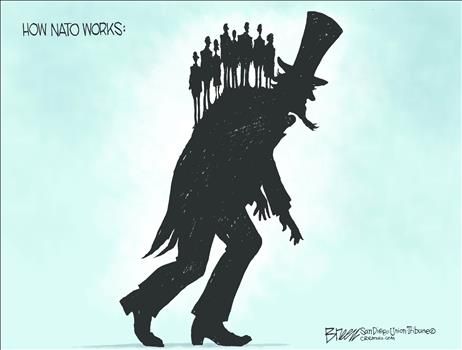End its support of "ever closer union" in the EU. It is no longer in the interests of the U.S. for Europe to continue down its path of political and economic integration. The excessive drive by European political elites to integrate deeper has led to many of the political and economic problems faced today in Europe. The U.S. should stop calling for further EU integration and instead pursue policies toward Europe that place a premium on national sovereignty, economic freedom, transparency, and democratic accountability.
Ensure that NATO retains its primacy over, and the right of first refusal for, all Europe-related defense matters. NATO has been the cornerstone of transatlantic security for 64 years. Now is not the time to replace NATO with new security structures that will only compete with, not complement, the alliance. Ensuring that NATO maintains its lead role in European defense policy will also ensure that America has the amount of influence relevant to the level of resources the U.S. has committed to Europe.
Make clear that the U.S. does not back deeper EU defense integration. U.S. policymakers must see the CSDP for what it is: a paper tiger that has not delivered increased military capability for the U.S. or for NATO. Although the U.S. has supported deeper EU defense integration, it has not resulted in any greater military capability in Europe. Instead, the U.S. must focus on re-energizing NATO as Europe's premier defense alliance.
Regularly demonstrate American dissatisfaction with Europe's military spending. Since the end of the Cold War, defense spending in Europe has drastically decreased. Only four of the 28 members of NATO meet the required defense spending requirement of 2 percent of GDP. While there is nothing American leaders can say that will compel Europeans to spend more on defense, saying nothing at all offers implicit approval.
Work with pro-NATO EU members, such as the U.K. and Czech Republic, to advance a pro-NATO agenda in Europe. There are members of the EU who are skeptical regarding the EU's defense policy ambitions. The U.S. should work with these NATO allies to advance a "NATO first" agenda.
Voice opposition to the creation of an EU Army. Although there is not currently an EU Army, the creation of one is clearly the goal of many in Europe. It is not in the interest of the U.S. or NATO to have a European Army under the control of unelected European bureaucrats.
...
Conclusion
American support for deeper EU defense integration will not only be a disappointment for those who believe it will lead to greater military capability; it will prove to be dangerous to the NATO alliance. As the EU develops a more integrated defense capability, America's influence in European defense matters that it currently has through NATO will be reduced.



